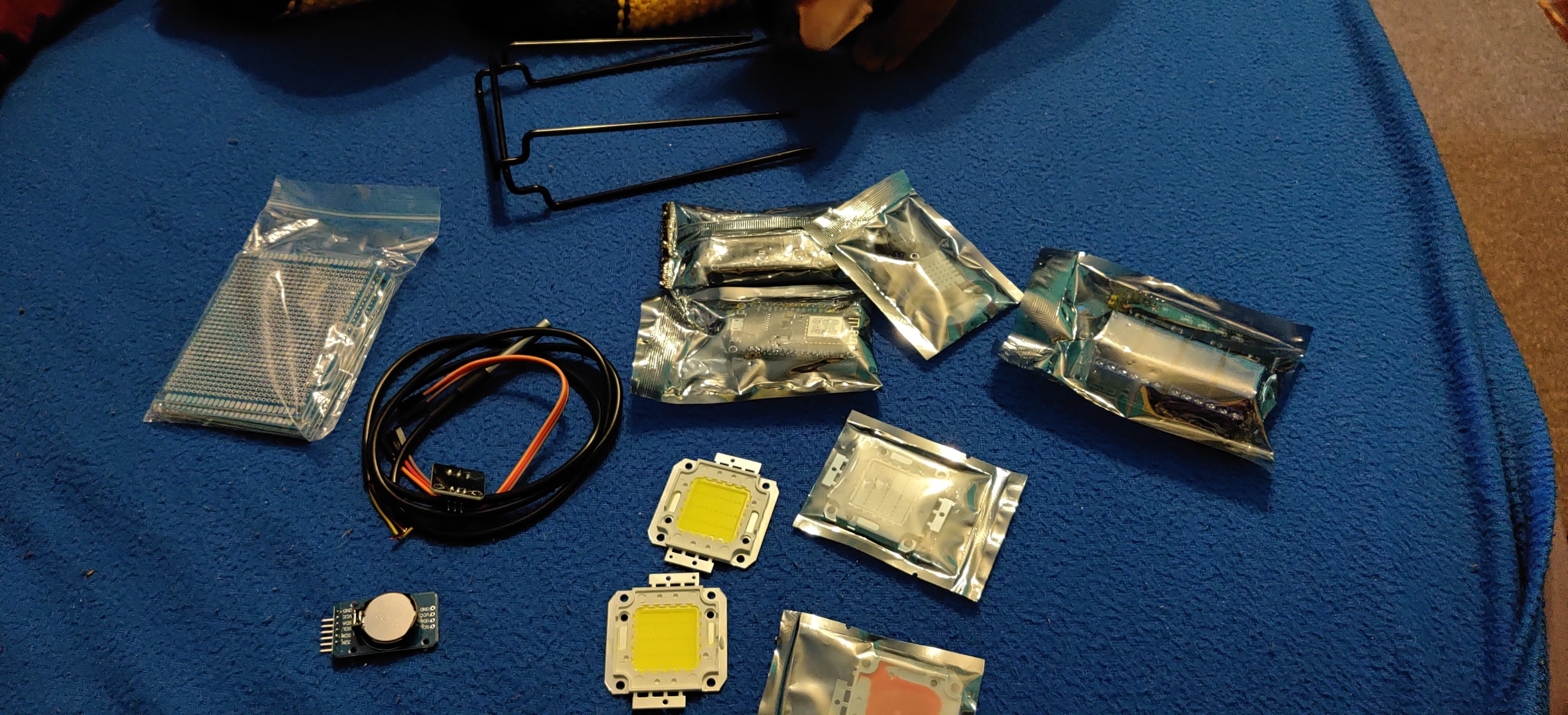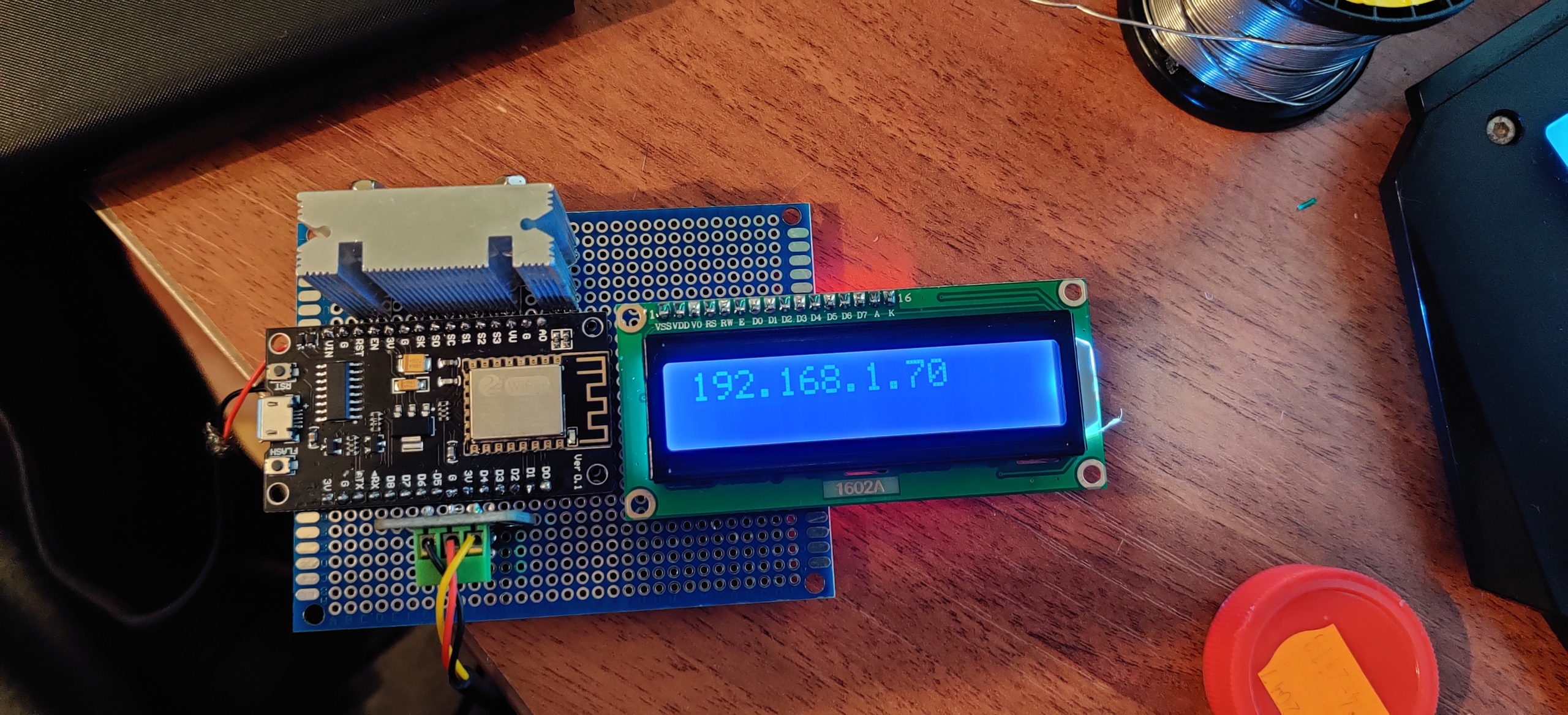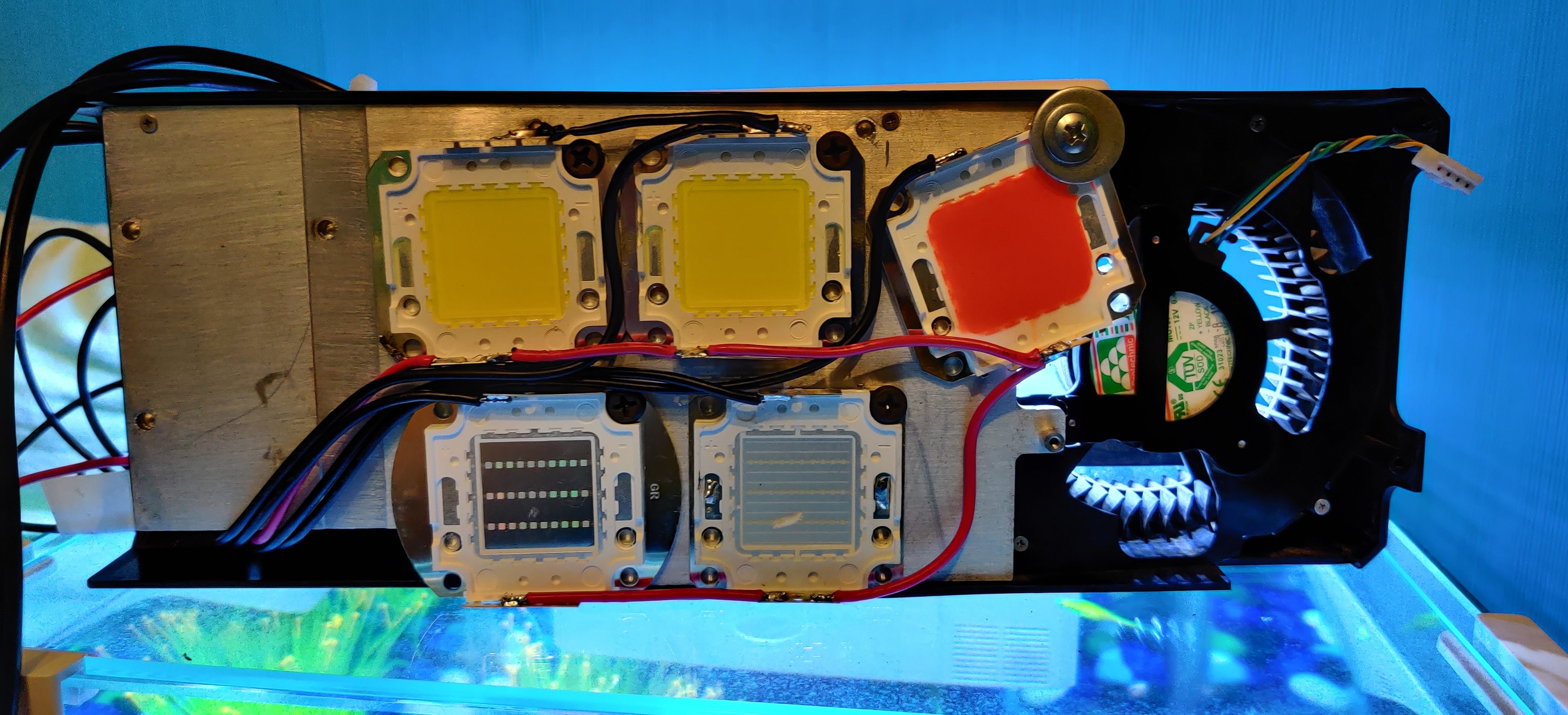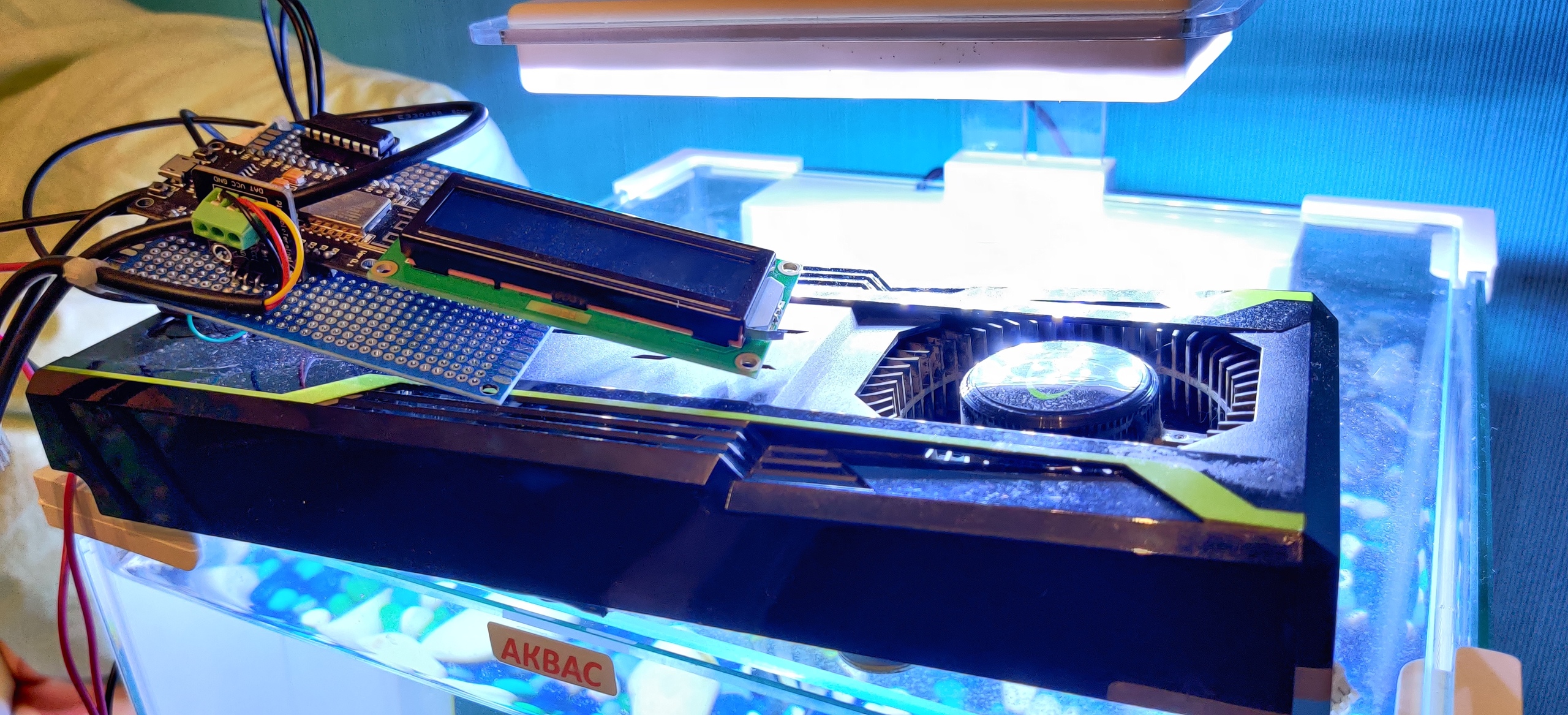
Prologue
Tout en travaillant comme programmeur dans l'une des grandes entreprises prospères de Moscou, je n'ai jamais cessé d'améliorer mes compétences en programmation et j'ai suivi divers cours sur la plate-forme Udemy.
Bien sûr, regarder le cours et tout répéter après l'auteur était ennuyeux, et il y avait des moments que je ne comprenais pas à cause de mon incompétence à ce moment-là. Vous devez faire vos projets en fonction de ce que l'auteur du cours donne - j'ai pensé, et bien sûr j'avais raison. Seules les difficultés réelles et leur résolution vous donnent une expérience inestimable, c'est un véritable apprentissage.
web , . Full-stack , , , . JavaScript Express, Appolo GraphQL ( , - REST ), Apollo GQL Vue.
, , , , . , , , " ", "The Facebook", "Instagram" .. , , .
, , , ? ...
, 15 3 . , " , , , ". . "" — , , , .
, . - , . - . .
, " " — 20-50 , "" . , (, , , ), , RGB . , . . . . . . , , .
Arduino. , , .
—
NodeMCU — "" WI-FI (ESP 8266), , Arduino nano wi-fi , .. NodeMCU, .

Arduino IDE ( Windows 10, ), WI-FI. , , . , , Lua( , Micro python, )
, , , C++ Arduino JS Python(). :
init.lua
print ( "Waiting ...")
tmr.register (0, 5000, tmr.ALARM_SINGLE, function (t) tmr.unregister (0); print ( "Starting ..."); dofile ( "main.lua") end)
tmr.start (0)main.lua
--WiFi Settup
wifi.setmode(wifi.STATION)
local cfg={}
cfg.ssid="wifi_point_name"
cfg.pwd="point_pass"
wifi.sta.config(cfg)
cfg = nil
collectgarbage()
=wifi.ap.getip() WI-FI , , begin end. esp-8266 , . , Micro python, , lua .
pip install -g esptool
esptool.py --port COM3 --baud 460800 write_flash --flash_size=detect 0 esp8266-20191220-v1.12.bin IDE EsPy "" .
, , :
boot.py— , . , Wi-FiWebREPL;main.py— ,boot.py, .
WebREPL — ssh raspberri, , EsPy esptool, . — WI-FI — .
boot.py
import network
import time
''' WiFi '''
wlan_id = "my_point"
wlan_pass = "strong_pass"
wlan = network.WLAN(network.STA_IF)
wlan.active(True)
if wlan.isconnected() == False:
wlan.connect(wlan_id, wlan_pass)
while wlan.isconnected() == False:
time.sleep(3)
print("Connection Fail...")
print('Device IP:', wlan.ifconfig()[0]) main.py , , asyncio, ( ).
main.py
from app import app_start
app_start() MicroPyServer ( ), - ( ). .
app.py
from micropyserver import MicroPyServer
import ujson
server = MicroPyServer()
def send(self, **kwargs):
'''
'''
server.send(
ujson.dumps(kwargs),
content_type="Content-Type: application/json",
# CORS
extra_headers=["Access-Control-Allow-Origin: *"]
)
gc.collect()
def healthcheck():
send(success=1, healthcheck='green')
server.add_route("/healthcheck", healthcheck)
def app_start():
server.start()() , , . .
main.pyboot.pyapp.pymicropyserver.py
, http://192.168.1.70/ . , http://192.168.1.70/healthcheck, — ,

// Json from chrome browser
{
"success": 1,
"healthcheck": "green",
} hardware ( , LED-, LCD- .. ), , , . , , .
app.py
from heater import Heater
# ...
class HttpHelper:
"""
GET
"""
def __init__(self):
pass
def parse(self, request):
'''
'''
lines = request.split("\r\n")
result = {
'lines': lines,
'method': ure.search("^([A-Z]+)", lines[0]).group(1),
'path': ure.search(
"^[A-Z]+\\s+(/[-a-zA-Z0-9_.]*)", lines[0]
).group(1),
}
param_split = ure.sub("\/([a-z]+_?)+?\?", '', lines[0].split(" ")[1])
result['params'] = self.get_params(param_split.split("&"))
return result
def get_params(self, params_as_array):
'''
query
'''
params = {}
for element in params_as_array:
splited = element.split("=")
params[splited[0]] = splited[1]
return params
def send(self, **kwargs):
'''
'''
server.send(
ujson.dumps(kwargs),
content_type="Content-Type: application/json",
extra_headers=["Access-Control-Allow-Origin: *"]
)
gc.collect()
# ...
def get_water_temperature_C(request):
'''
'''
try:
water_heater.get_water_tmp_C()
http_helper.send(
success=1,
water_temperature_c=water_heater.water_tmp
)
except Exception as e:
print(e)
http_helper.send(success=0, error=e)
# ...
server.add_route("/healthcheck", healthcheck)
server.add_route("/get_water_tmp", get_water_temperature_C)
# ... heater.py
import machine
import onewire
import ds18x20
HEATER_PIN = 2
class Heater:
def __init__(self):
self.water_tmp = 0.00
self.heater_pin = machine.Pin(HEATER_PIN)
self.sensor = ds18x20.DS18X20(onewire.OneWire(self.heater_pin))
def get_water_tmp_C(self):
rows = self.sensor.scan()
self.sensor.convert_temp()
for rom in rows:
self.water_tmp = self.sensor.read_temp(rom)
return self.water_tmpLED . , . 5 :

- 2
- 1
- 1
- 1
32 , (24V) . , , " ", , , . , . -, , 100% . , .
, API.
LCD , IP , ip . frontend , .

IOT , . MicroPyServer, . , , , try except, .
micropyserver.py
# ...
def _get_request(self):
""" Return request body """
# 4096 , MemoryError
return str(self._connect.recv(1024), "utf8"):
- Automatisez le travail avec l'éclairage, afin qu'il vérifie lui-même l'éclairage même de la pièce + crée l'effet du coucher du soleil et de l'aube, et le clair de lune la nuit.
- Automatisez l'analyse de l'eau
- Automatisez le chauffage de l'eau
- Automatiser la pompe de débit
- Chargeur automatique
- Remplissage automatique